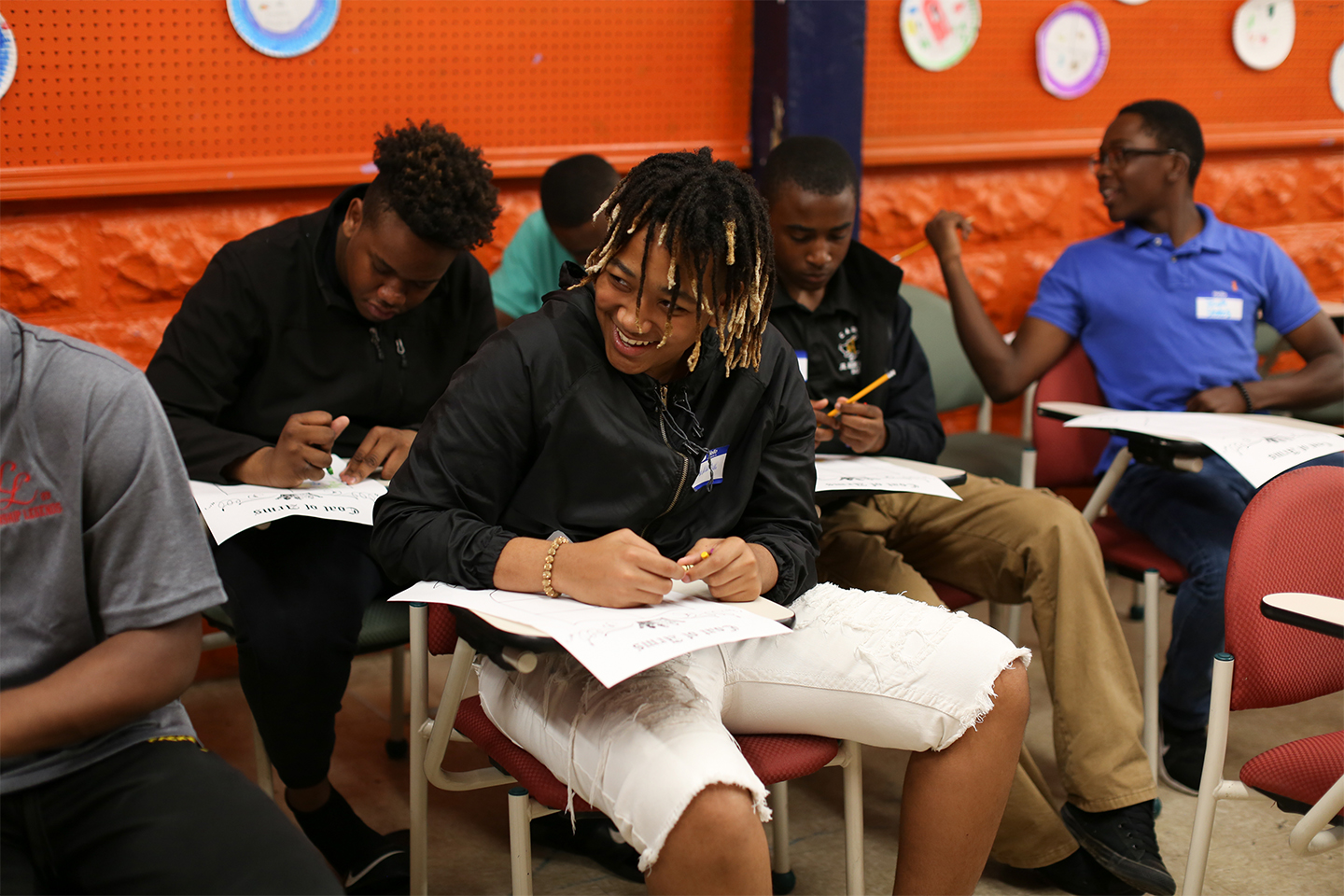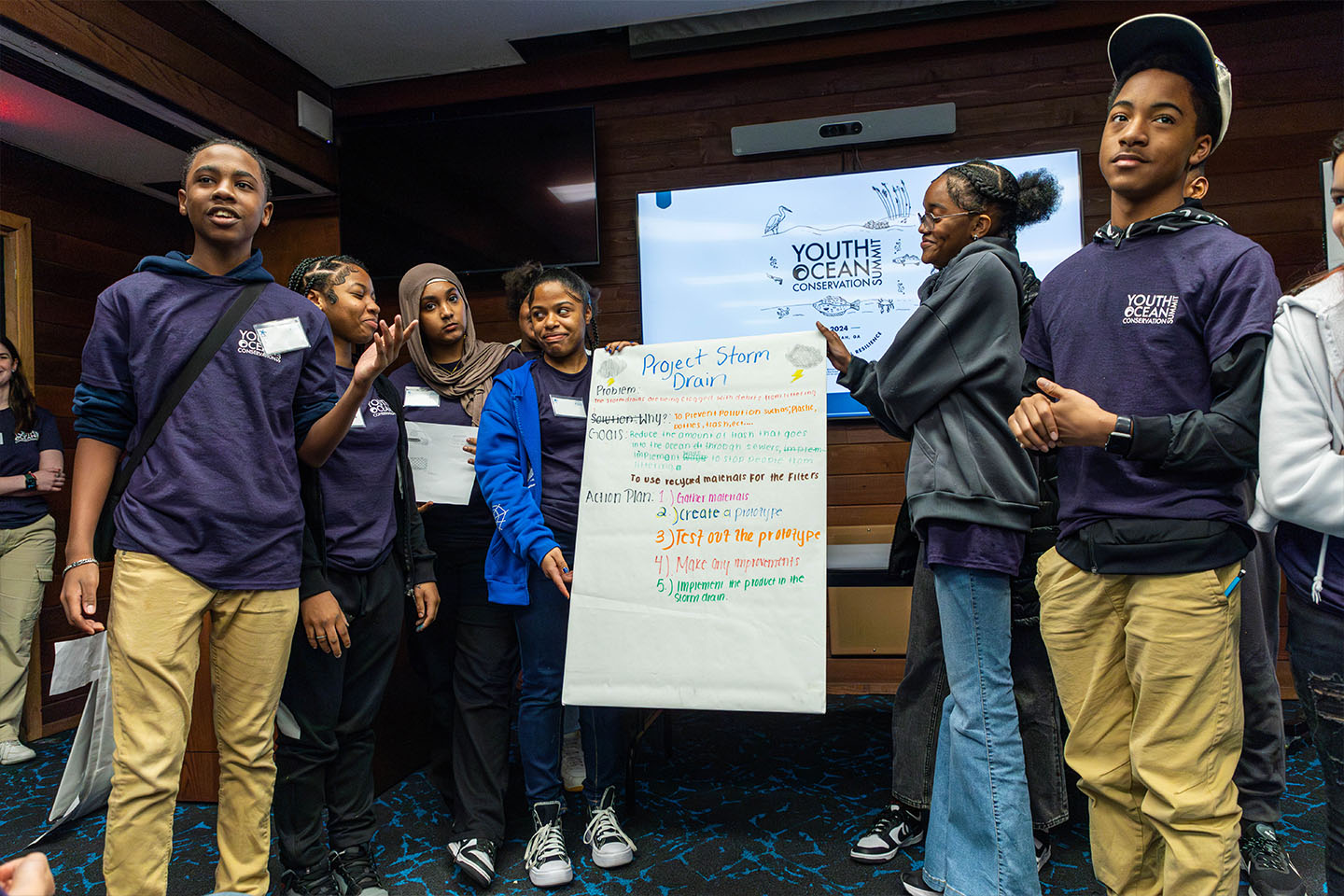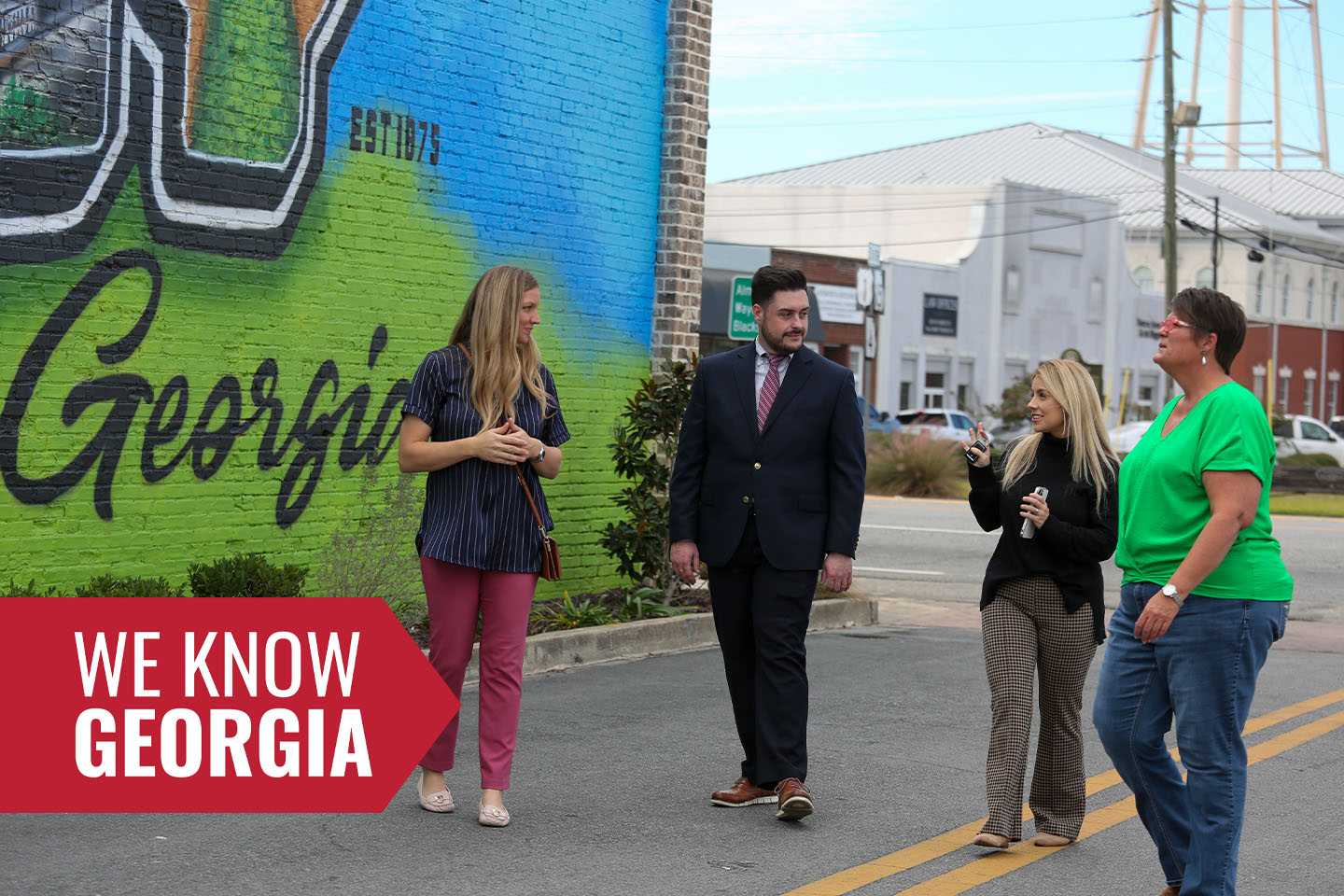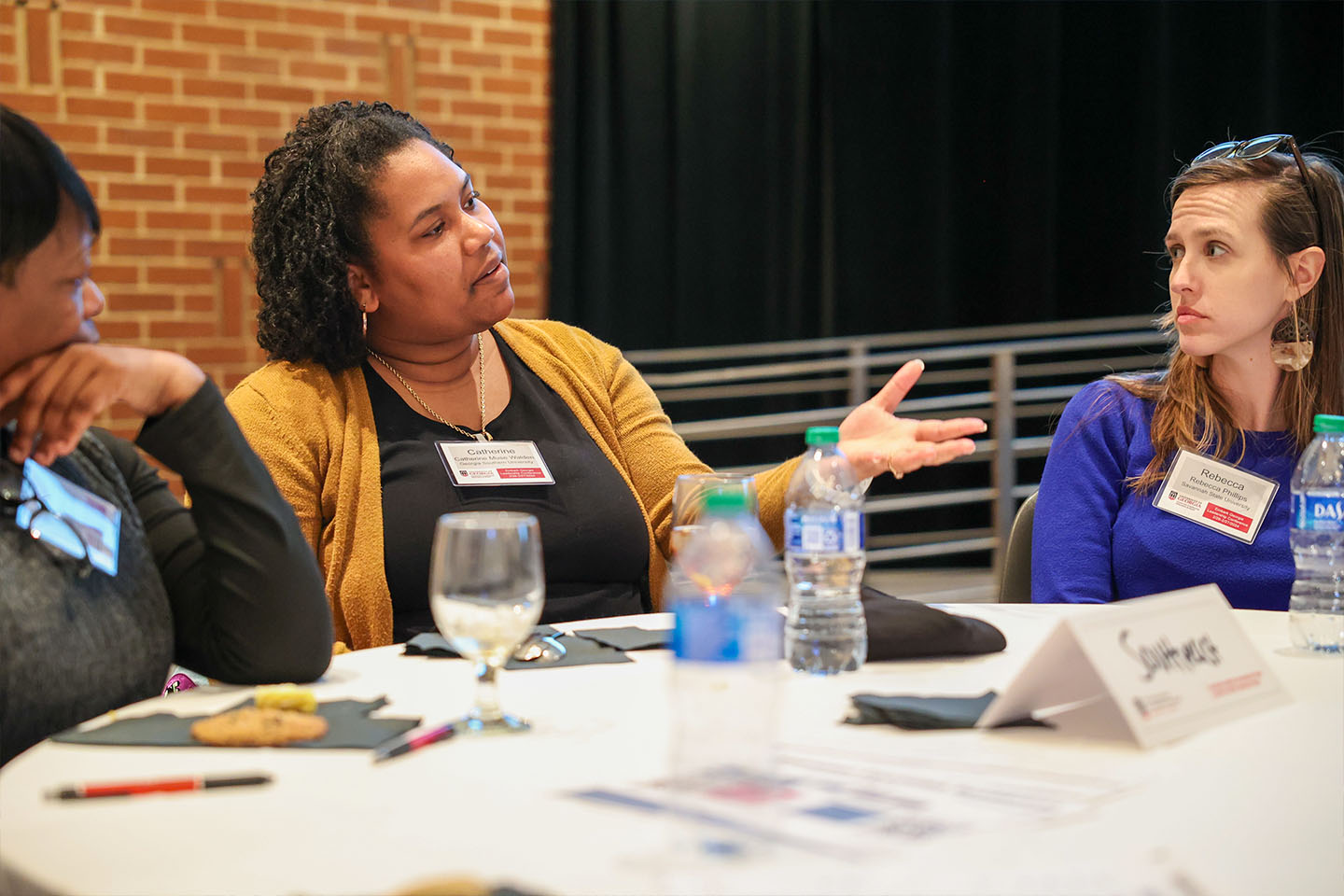In the fall of 2018, Colquitt County eighth-grader Jayden Smith wasn’t sure about giving up his Saturdays to participate in a new program called Leadership Legends, presented by the University of Georgia. Three years later, he is glad he did.
“Over the last three years, this program has helped me learn where I can give back to my community and use skills and values to influence future generations and show them the importance of hard work and giving back,” Smith said.
Smith and the rest of the 13-member inaugural UGA Leadership Legends class graduated during a virtual ceremony in September.
Developed by the UGA J.W. Fanning Institute for Leadership Development, a unit of UGA Public Service and Outreach, Leadership Legends prepares young African American males in Colquitt County to be future leaders in their community.
The program grew out of a conversation between Colquitt County natives Ralph “RJ” Taylor and Brian Knighton in 2017 about what they saw as a pressing need in the community – the development of the next generation of young African American leaders.
“When I was growing up, I looked up to Brian and he mentored me and made sure I stayed on the right track,” Taylor said. “We felt a program that developed mentoring relationships and created future leaders was very important for the community.”
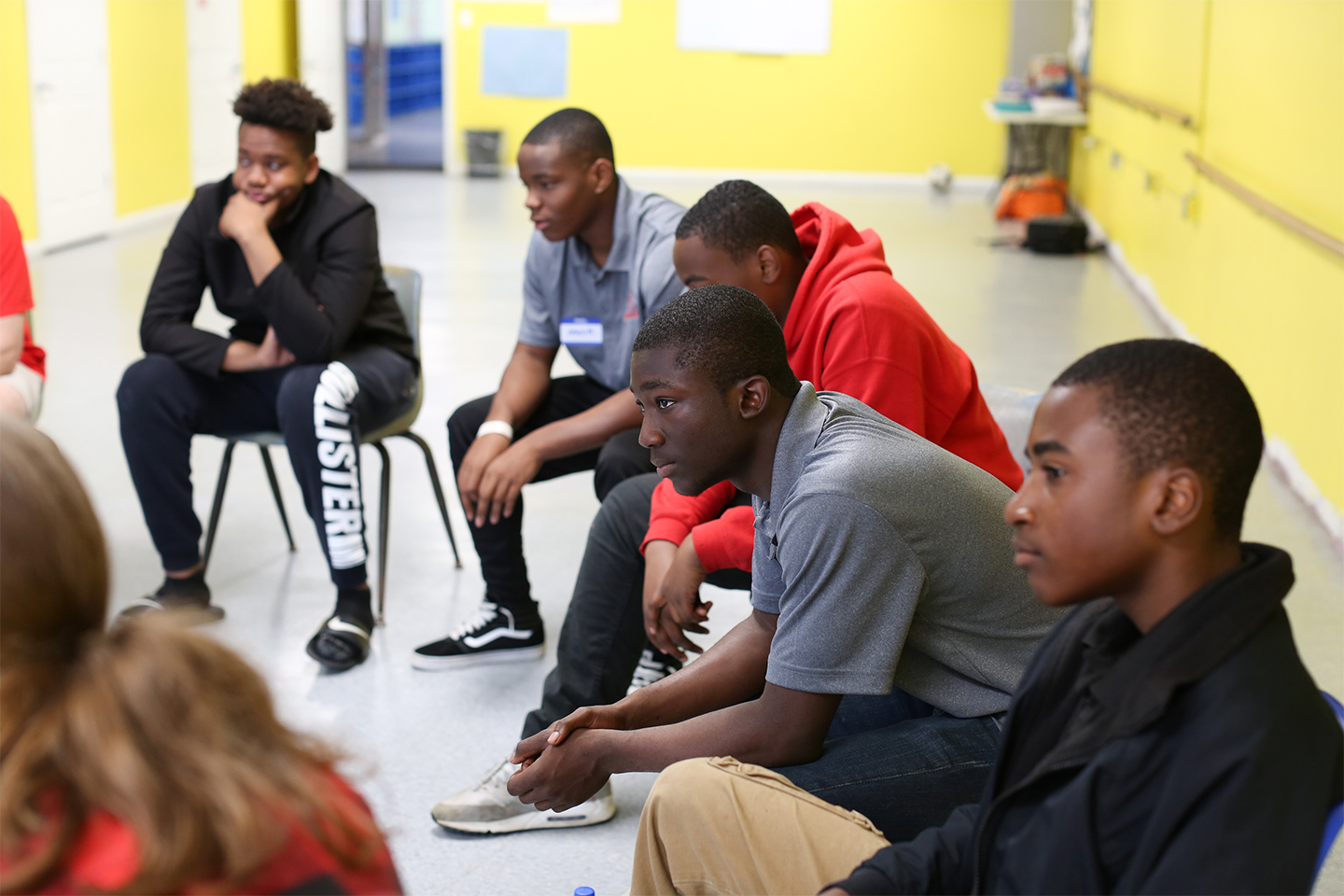
(PHOTO: Shannah Montgomery / PSO)
At that point, Taylor, a financial advisor, and Knighton, principal of Stringfellow Elementary School in Moultrie, connected with the Fanning Institute through the UGA Archway Partnership, also a Public Service and Outreach unit, and Leadership Legends was born.
Beginning in their eighth grade year, the program focused on helping the youth develop their self-awareness as leaders and improving their abilities to work with others as part of a team by building their communication, decision-making and conflict management skills.
In particular, Smith remembered a teamwork exercise where group members stood in a circle and threw balls to each other, keeping them in order.
“That showed me that I can’t do everything by myself,” Smith said. “We have to rely on each other and work together in order to accomplish things.”
Developing these leadership skills forms the foundation for any leader, said Terence Johnson, a UGA Fanning Institute faculty member.
“If you want to be an effective leader, you have to know yourself first and then you have to know how to build relationships,” Johnson said. “Once you have those areas mastered, an effective leader knows how to put those to use to get something done.”
The program focused on two areas to show the youth how they could make an impact. First, they volunteered in the community as a group to gain an understanding of the importance of servant leadership. Then, they developed their public speaking skills and attended local meetings to gain an understanding of civic engagement.
“Leadership Legends taught me about leadership, teamwork, how to make the right decisions, and how to carry myself as a young man,” said participant Everett Green. “I also learned a lot about my community.”
Leadership Legends also addressed the relationship between law enforcement and African-American youth.
In October 2020, the youth met with both the Colquitt County Sheriff’s Office and Moultrie Police Department.
The youth asked questions on topics including race relations, how law enforcement interacts with Black youth and how they can help make things better in their community.
After the meeting the youth had a different perspective on law enforcement.
“At first I did not talk to law enforcement, but now I understand that they take certain steps when helping with and dealing with tough situations,” said participant Carlos Moore. “Also, talking face-to-face with law enforcement made me better at public speaking.”
Moultrie Police Chief Sean Ladson said that the conversation provided an opportunity for both sides to increase their understanding of each other.
“If we can engage with each other and break down some of those stereotypes, we can let them see who we are and build those relationships,” said Ladson. “I think it was similar in some ways to a one-on-one conversation between our officers and the youth and it was an excellent dialogue.”
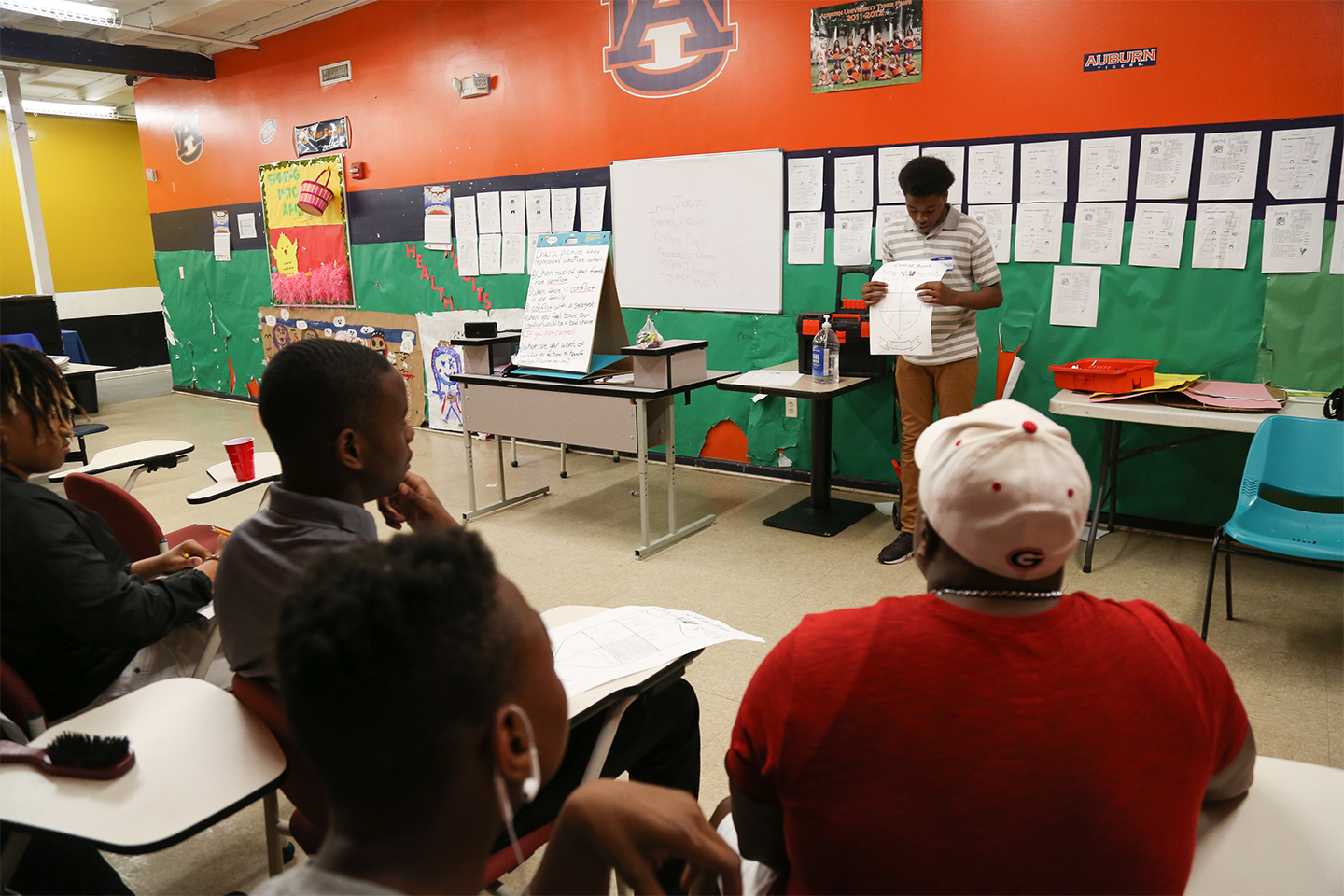
(PHOTO: Shannah Montgomery / PSO)
Colquitt County Sheriff Rod Howell also called it an important conversation because it provided both the youth and the officers to ask questions.
“It was a real conversation and it was good to sit down and have it,” said Howell. “It’s also good because we got to ask them questions and really have a dialogue. They’re asking us questions based off of their day-to-day experiences and to have that feedback was so important and gives us a better experience.”
The meeting was a monumental experience for the class, said Knighton.
“As these young men grow to be future community leaders, to be able have these dialogues, helps keep them in tune with what is relevant in our world, which will help them make sound decisions from a leadership perspective,” Knighton said. “Being involved in current events and being able to engage in those types of discussions from a community aspect is so important, and they have first-hand experience and can speak with their peers about these issues as well.”
Building strong peer relationships and mentoring younger students is a key component of UGA Leadership Legends. Each of the initial 13 graduates will serve as a mentor for the next Leadership Legends class, currently being planned.
“This program has had an impact on me and I look forward to helping with the next group of young men and being an example for them,” said Green.
The Leadership Legends program represents a unique approach to developing future leaders, said Matt Bishop, Fanning Institute director.
“Most youth leadership programs take place over the course of one year or less,” Bishop said. “Leadership Legends flipped that on its head by creating a three-year program. Through the support of the community and the commitment and dedication of these young men, this program has laid a foundation which communities across Georgia can replicate.”
Looking back on the last three years, Smith called the whole experience “amazing.”
“Participating in Leadership Legends enhanced my character, leadership skills and public speaking abilities,” he said. “We will take the skills we learned here into whatever we pursue in the future.”
For more information on the Leadership Legends program or on starting a similar program in your community, contact Terence Johnson.
WRITER
Charlie Bauder Public Relations Coordinator
charlie.bauder@fanning.uga.edu • 706-542-7039
CONTACT
Terence Johnson Fanning Institute Faculty Member

